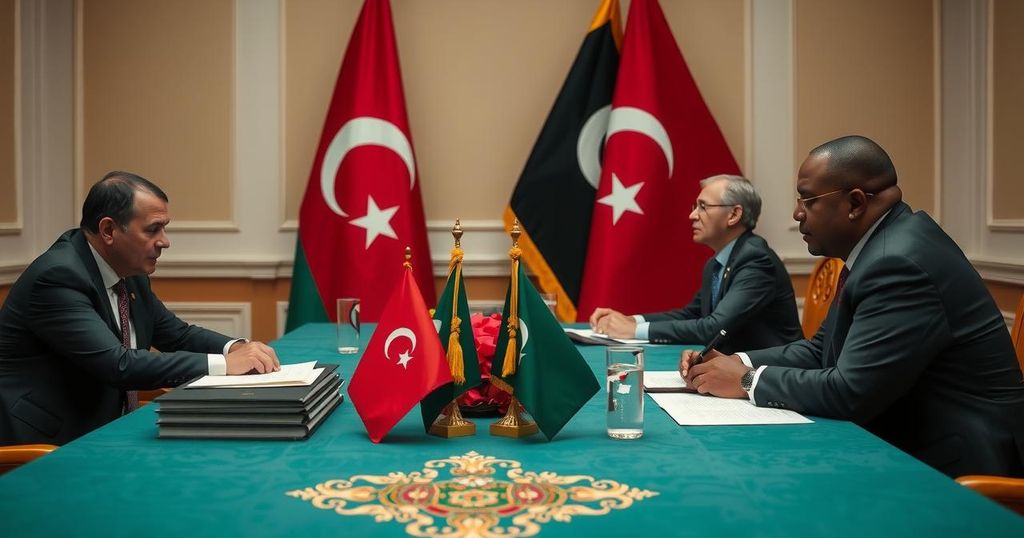Libyan Rivals Reengage in Morocco to Resolve Political Stalemate

Libyan rival institutions have restarted negotiations in Morocco to resolve a political deadlock that threatens national stability. The discussions involve the High Council of State and the House of Representatives, following years of division and a failed electoral process in 2021. Moroccan officials emphasize the importance of unity and credible elections to ensure Libya’s future peace.
Delegations representing conflicting Libyan institutions have recommenced discussions in Morocco, aiming to resolve a political stalemate that threatens to plunge the nation back into turmoil. The negotiations, taking place in Bouznika, involve two legislative factions: the High Council of State situated in Tripoli in the west, and the House of Representatives based in Benghazi in the east. These talks are crucial in the wake of Libya’s longstanding divisions since its split in 2014, which followed the NATO-supported overthrow of former leader Muammar Qaddafi in 2011.
During the opening of these talks, Moroccan Foreign Minister Nasser Bourita emphasized the importance of maintaining Libya’s unity and called for the organization of “credible elections.” He remarked that international and regional conferences cannot substitute the significant intranational dialogue that Libya requires to gain credibility and ownership of its political solutions.
The pathway to stabilizing Libya has encountered significant setbacks since the planned elections of December 2021 faltered due to disputes regarding candidate eligibility. Initially elected in 2014, the House of Representatives was tasked with overseeing a political transition lasting four years. Furthermore, the 2015 Libyan Political Agreement established the High State Council as a consultative chamber, though challenges arose when the House of Representatives unilaterally appointed a rival government, claiming that the mandate of the former prime minister had lapsed, deepening the existing east-west divide.
Libya has been embroiled in conflict and political instability since the fall of Muammar Qaddafi in 2011, which resulted in a bifurcation of power between two rival administrations in the east and west of the country. The political landscape has been characterized by a lack of consensus and ongoing disputes, particularly following the failed elections of December 2021, which halted any progress toward consolidating power or fostering national unity. The country’s complex political history is pivotal in understanding the significance of the recent talks aimed at reconciling the differences between the contending factions.
In summary, the resumption of talks between rival Libyan legislative bodies in Morocco represents a critical effort to address the ongoing political deadlock in Libya. With the support of international stakeholders, particularly Morocco, the parties involved must prioritize constructive dialogue to facilitate a stable political environment and pave the way for credible electoral processes, thereby encouraging national cohesion and preventing a return to chaos.
Original Source: www.arabnews.com






